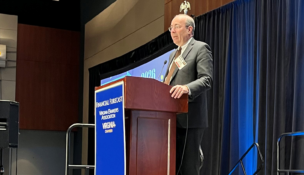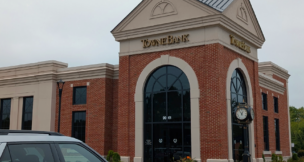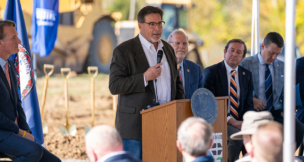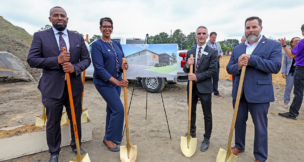Moving along
Regional economy is on the upswing despite the slow pace of the recovery
Moving along
Regional economy is on the upswing despite the slow pace of the recovery
Central Virginia economic development officials are optimistic about the region’s direction despite the slow improvement of the national economy.
Greg Wingfield, president and CEO of the Greater Richmond Partnership (GRP), says things are on the upswing for his area, which includes Richmond plus Chesterfield, Hanover and Henrico counties. Many economists in the region think it finally will regain during 2014 the last of the 45,000 jobs lost during the Great Recession.
“It’s taken us four or five years to absorb that loss of 45,000 jobs, and now we’ll be moving forward and adding jobs positively,” Wingfield says.
Helping meet that goal is a recent announcement that Amazon.com plans to add 1,000 full-time workers at its fulfillment centers in Chesterfield and Dinwiddie counties.
In 2013, GRP announced 1,277 new jobs from 16 companies investing more than $172 million. Gary McLaren, executive director of the Henrico County Economic Development Authority, says Henrico ranked second in the commonwealth among localities announcing new jobs in 2013. The county announced 1,563 jobs last year. (GRP wasn’t involved in all those projects.)
“I think we are definitely seeing a recovery, just a slower recovery,” says Renee Chapline, president and CEO of Virginia’s Gateway Region, an economic development organization serving the cities of Colonial Heights, Hopewell and Petersburg plus Chesterfield, Dinwiddie and Prince George counties. The organization announced 1,546 jobs and $237.5 million in investments in 2013.
Hopewell welcomed news that Vireol Bio-Industries PLC plans to open an ethanol plant previously owned by Osage Bio Energy. United Kingdom-based Vireol is investing $30 million and creating 75 jobs.
The facility was supposed to be the first commercial plant in the U.S. to make fuel-grade ethanol from barley, but Osage closed it in 2011 before it reached full production. Vireol expected to have the plant operational by February, says Andrew Hagy, Hopewell’s economic development director.
“We, the city, had high hopes for the plant, and Vireol originally came in, purchasing the plant to disassemble it and ship the equipment to the UK,” explains Hagy. “However, once they got access to the plant and the equipment, they began doing a due-diligence and realized that there may be a good chance of operating the facility rather than disassembling it.”
Lynchburg’s economic development director, Marjette Upshur, highlights a number of economic development successes. She sees Liberty University as a major economic engine, pointing to the school’s many building projects. The university has embarked on a $500 million campus renovation project. In January, Liberty officially opened the $50 million, 170,000-square-foot Jerry Falwell Library.
Also fueling the area economy is a $26.3 million expansion announced last year by nuclear energy company Areva. It has designated facilities in Lynchburg and Campbell County as its Operational Center of Excellence for Nuclear Products and Services in North America. Investments will include advanced machinery and equipment to enhance research and development capabilities and to improve competitiveness in advanced manufacturing. The expansion will add $10.9 million in machinery and tools in Lynchburg during the next three years and $6.9 million of investments in the Areva Solutions Complex in Campbell County.
Central Virginia continues to see growth in several industries, including logistics, call centers, manufacturing, and food and beverages.
While Amazon.com continues to expand, another logistics project involved The Vitamin Shoppe, which opened its nearly 312,000-square-foot distribution center last year in Ashland. The project is expected to create 174 jobs. (See related story)
Aiding logistics and manufacturing growth in the region are two collaborative research organizations with university, corporate and government partners: the Commonwealth Center for Advanced Manufacturing (CCAM) and the Commonwealth Center for Advanced Logistics Systems (CCALS), both based in Prince George County.
Assessing challenges to the region, Chapline points to the effects of federal budget cuts on defense contractors and subcontractors working at Fort Lee.
Another hurdle for economic developers in Central Virginia is a lack of shovel-ready sites. “That is our single challenge,” says Edwin Gaskin, Hanover County’s economic development director. “We have great traffic in terms of interested prospects. We have a great response in terms of the location, the quality of life. It’s growth potential. What we lack are places for those investments to be received in terms of commercial pad-ready sites.”
The Hanover County Board of Supervisors is working on this issue, he says. Gaskin also says Hanover lacks a locality-owned industrial park, although there are a few that are privately held. That puts Hanover at a disadvantage in recruiting large businesses because other competitors often have government-owned land.
Wingfield also says economic development officials need to be able to offer companies more land and building opportunities, particularly in Chesterfield.
“If a manufacturing company came into the Greater Richmond area and wanted a 50,000- to 60,000-square-foot building, stand-alone, not part of a larger space, we don’t have it,” he says, unless it’s an old warehouse or building that is not in good condition.
Wingfield also would like to see a regional workforce strategy. “We need a regional group that wakes up every day and says, ‘We’re all about workforce coordination,’” Wingfield says.
An economic development group serving the Lynchburg area restructured in 2013. Virginia’s Region 2000 Partnership’s economic development and technology councils created the Business and Economic Development Alliance.
“Essentially what’s happening is we’re trying to break some of the walls down so we can do a better job of incorporating the technology-based economic development,” says Bob Bailey, executive director at the Center for Advanced Engineering and Research in Bedford County which is part of Region 2000. “We had a partnership where they were working together, but it was still kind of technology initiatives and traditional economic development initiatives, and they were kind of like side by side … so the reorganization is meant to do a better job of really pulling those even closer together.”
Region 2000 also includes the local government council, the workforce investment board and the Young Professionals of Central Virginia.
The executive director positions for the economic development council and technology council positions were eliminated at the end of the year. Region 2000 expects to hire a CEO for the Business and Economic Development Alliance by June and then begin recruiting a senior vice president for the alliance.
At the end of 2013, the Lynchburg Regional Chamber of Commerce also eliminated the position of president because the city took its tourism program in-house rather than outsourcing it to the chamber. The Lynchburg chamber also is working to develop a regional economic development approach with other partners in the area.
“We need to take the lead on what kind of growth we want,” says P. Tulane Patterson, chair of the chamber of commerce. “What we are trying to do is to pull players together to have united economic growth.”
Another economic development organization in the region also had big news in 2013. The Thomas Jefferson Partnership for Economic Development changed its name to the Central Virginia Partnership for Economic Development. The organization serves Charlottesville and the counties of Albemarle, Culpeper, Fluvanna, Greene, Louisa, Nelson and Orange. Central Virginia Partnership announced the expected creation of 475 jobs in 2013 from projects involving a dozen businesses investing more than $40 million.
“We think leveraging that new name, leveraging Virginia as the best state for business and identifying where we are in the state is huge,” says the partnership’s president, Helen Cauthen.
Major employers by number of jobs
State government (Richmond MSA) 38,384 jobs
Federal government (Richmond MSA) 16,738 jobs
Fort Lee Army Base, 11,745 jobs
Chesterfield County, 13,371 jobs
Henrico County, 13,294 jobs
Capital One Financial Corp. (Richmond area) 10,918 jobs
City of Richmond, 10,751 jobs
VCU Health System (Richmond) 8,226 jobs
UVA Medical Center (Charlottesville) 7,306 jobs
HCA Virginia Health System (Richmond area) 6,904 jobs
Source: Richmond Times-Dispatch; United States Department of Labor
Central Virginia’s recent deals
Aditya Birla Minacs
Henrico County
528 jobs
StarTek Inc.
Campbell County
300 jobs
GENETWORx LLC
Henrico County
200 jobs
Sabra Dipping Co.
Chesterfield County
140 jobs
Marten Transport Ltd.
Chesterfield County
127 jobs
Tyson Foods Inc.
Hanover County
120 jobs
Porter’s Group LLC
Lynchburg
120 jobs
Dominion Packaging
Henrico County
113 jobs
Amsted Rail Co. Inc.
Petersburg
104 jobs
Michael & Son Services Inc.
Richmond
100 jobs

















